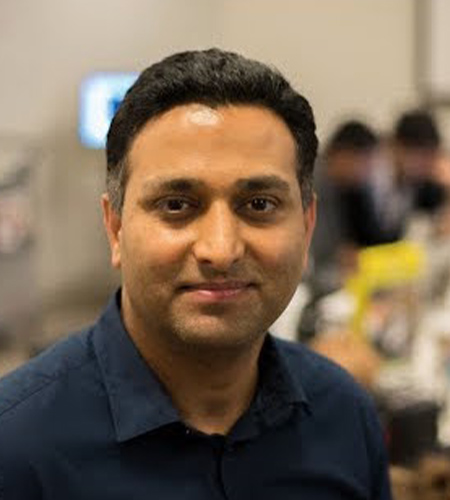
Ramesh Raskar
Faculty
Ramesh Raskar is an Associate Professor at MIT Media Lab. Ramesh Raskar joined the Media Lab from Mitsubishi Electric Research Laboratories in 2008 as head of the Lab’s Camera Culture research group. His research interests span the fields of computational photography, inverse problems in imaging and human-computer interaction. Recent projects and inventions include transient imaging to look around a corner, a next generation CAT-Scan machine, imperceptible markers for motion capture (Prakash), long distance barcodes (Bokode), touch+hover 3D interaction displays (BiDi screen), low-cost eye care devices (Netra,Catra), new theoretical models to augment light fields (ALF) to represent wave phenomena and algebraic rank constraints for 3D displays(HR3D).
In 2004, Raskar received the TR100 Award from Technology Review, which recognizes top young innovators under the age of 35, and in 2003, the Global Indus Technovator Award, instituted at MIT to recognize the top 20 Indian technology innovators worldwide. In 2009, he was awarded a Sloan Research Fellowship. In 2010, he received the Darpa Young Faculty award. Other awards include Marr Prize honorable mention 2009, LAUNCH Health Innovation Award, presented by NASA, USAID, US State Dept and NIKE, 2010, Vodafone Wireless Innovation Project Award (first place), 2011. He holds over 50 US patents and has received four Mitsubishi Electric Invention Awards. He is currently co-authoring a book on Computational Photography.
The Camera Culture Group at the Massachusetts Institute of Technology (MIT) is organizing collaborative HealthTech partnerships dedicated to addressing 21st Century global health challenges through innovative new health technologies. These HealthTech partnerships will bring together MIT’s excellence in technology innovation, engineering and entrepreneurship with global community partners skilled in providing quality health care, and will foster purposeful innovation through the focused and accelerated cultivation, development, scaling and deployment of ideas, methods, programs and technologies best suited to respond to health care’s rapidly changing landscape.
These programs aim to: create community-responsive, patient-centric, innovative technology solutions to address pressing health challenges, locally engage and develop the next generation of entrepreneurs, engineers, and researchers within partner communities, foster a strategically structured global ecosystem for purposeful innovation, significantly accelerate the development and deployment of targeted, cost-effective, globally scalable health technologies for first-mover advantage, and to deploy new health technologies that stand to disrupt and greatly improve the way health care is practiced in both partner communities and around the world.
At the foundational core of these HealthTech collaborative partnerships will be MIT-facilitated week-long “boot camps” held on-location in global partner communities.


